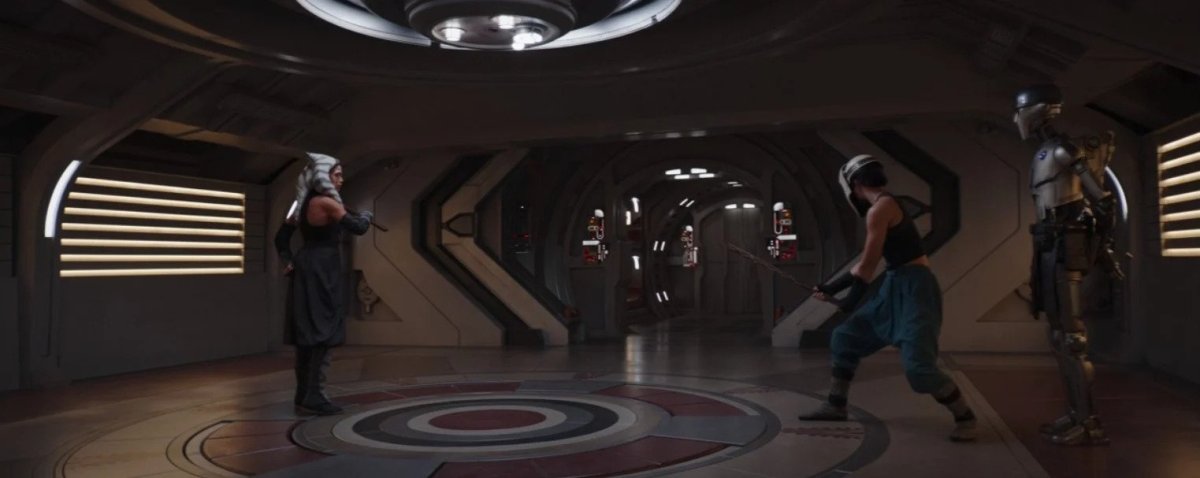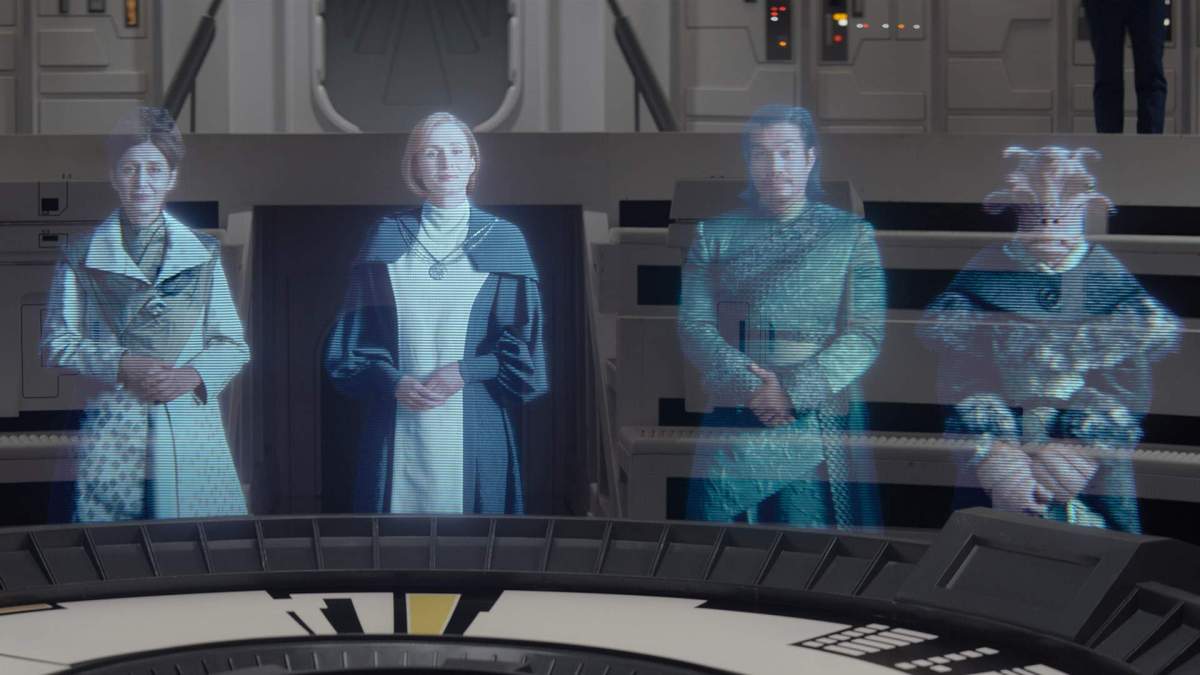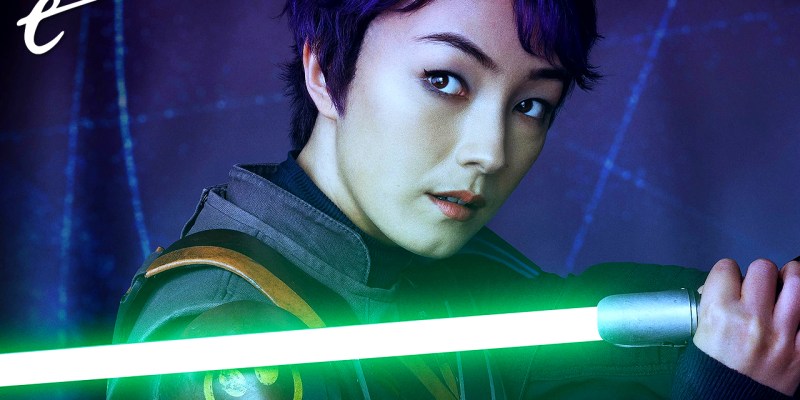This review contains some spoilers for episode 3 of Ahsoka, “Time to Fly”
Episode 3 of Ahsoka, titled “Time to Fly,” leans heavily on that classic Star Wars model of referencing its own past. When done well, it builds upon our decades of fandom and succeeds in George Lucas’ goal of having the series rhyme, like poetry. When done poorly, it makes us question why a given show or movie even exists in the first place. I’m looking at you, Book of Boba Fett and Obi-Wan.
I’m happy to say that so far, Ahsoka’s flavor of self-reference falls more in the former category, though it’s only by escaping this cycle altogether that Star Wars is able to truly soar, as we’ve seen in recent years with Andor and The Last Jedi.
Right off the bat, “Time to Fly” (directed by Steph Green and written by Dave Filoni) places us in a scenario that we’ve all seen before. Sabine (Natasha Liu Bordizzo) is training with Huyang (David Tennant) and Ahsoka (Rosario Dawson) in a moment reminiscent of A New Hope. Both take place in the common area of a spaceship, both feature a mentor trying to teach patience to their brash student, and both feature failed attempts at seeing without using one’s eyes.

This series delves even deeper down the rabbit hole by directly referencing the samurai films that inspired Lucas in the first place. Ahsoka refers to the blind training as Zotochi, a nod to the Zatoichi character, a blind swordsman popularized throughout dozens of excellentsamurai films. Of course, this character and archetype has been directly referenced in Star Wars before, both in Donny Yen’s Chirrut Imwe from Rogue One, and Kanan’s loss of sight in Rebels.
As Sabine grows more frustrated, Ahsoka lectures her in a way we could imagine a few other familiar Jedi delivering. “Anger and frustration are quick to give power. But they also unbalance you.” It’s funny to hear this coming from Ahsoka, as in her younger years during The Clone Wars, she was brash and reckless like Anakin. But as she’s grown older, she’s adopted a calmer and wiser demeanor, more akin to Obi-Wan.
The familiar hits continue throughout the episode, with Hera (Mary Elizabeth Winstead) having a brief back-and-forth with Mon Mothma (Genevieve O’Reilly) and a handful of other New Republic senators on the bridge of the Home One, the same frigate Admiral Ackbar helmed in Return of the Jedi, and it’s this same room where we were first introduced to Mon Mothma in that very movie. I appreciated Hera biting back at the senator who accused her of using Republic resources on a wild goose chase to find Ezra, especially the line, “Were you ever in the war, senator? Just sat back and waited to see who came out on top?”
But as much as I like this moment, I couldn’t help but see Mon Mothma and think about how much more of a three-dimensional human being she was in Andor, with hopes, fears, and flaws. There, she’s a person who needs to break her ethical code for what she hopes is a greater good. But like a lot of things in Ahsoka, here she feels two dimensional, which I guess is fitting considering this feels like the fifth season of an animated series.

That last point is further stated during the episode’s big action beat, which starts with a great moment where Ahsoka and Sabine have to put their Master/Padawan relationship aside and instead work in tandem in order to take out the enemy ships on their tail. The way the two of them need to synchronize their thoughts, movements, and actions reminded me a bit of Neon Genesis Evengelion’s episode “Both of You, Dance Like You Want to Win!,” where Shinji and Asuka need to put aside their differences and learn to act as a single unit. You know what’s great? Neon Genesis Evangelion.
And speaking of anime, this scene culminates in Ahsoka putting on a space suit, standing on the wing of the ship, igniting her twin blades, and taking on the incoming fighters using low-gravity leaps and dodges. This moment brough heavy shades of the excellent “The Twins” short in Star Wars: Visions.
The rest of the “Time to Fly” is filled with the kinds of moments that make fans of Rebels like myself pull a Rick Dalton and point at the screen, while I imagine relative newcomers just trying to figure out why Hera has a human son named Jacen, and just why the hell these magical space whales called purrgils are so important. But I guess that’ll happen when you’re almost 50 years into a poem that is still rhyming with lines from the past five decades.
